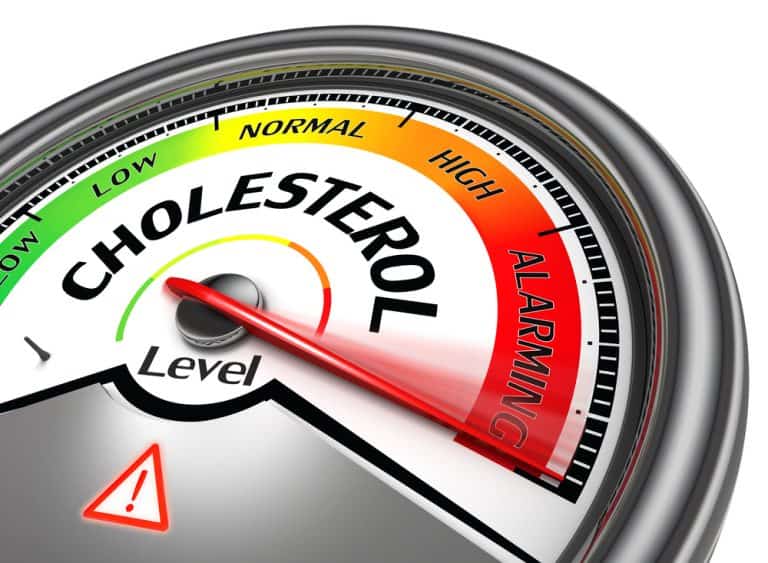Contains many vitamins and other nutrients, but there are people who are lazy about eating fruit. The reason is usually because you are lazy about peeling the skin, cutting the fruit and your hands are sticky because of the fruit juice. Well, there is a practical way to eat fruit, namely dried fruit. So are dried fruit snacks healthy?
Yes, dried fruit or freeze dried fruit has recently gone viral on social media. Various fruits that have been cut into small pieces are eaten in dry form. The responses of netizens who have tried it vary, some say the fruit is crisper, tastes as good as fresh fruit, is sweeter, or there are also comments that the texture and taste are strange.
If so, do you intend to try it? But don’t just jump on the bandwagon because it’s a trend, it’s better to know what the health benefits are from consuming dried fruit and snacking on it every day.
Dried Fruit, How is it Different from Fresh Fruit?
Dried fruit goes through a drying process either naturally, namely drying it in direct sunlight or using a food dryer (dehydrator) to remove all the water contained in it. All the water released from the fruit makes the fruit become smaller because it shrinks in volume.
This method of drying fresh fruit is actually an old practice, since BC (BC) in Mesopotamia with the aim of extending the shelf life, making the fruit sweeter and of greater nutritional value.
In the past, commonly dried fruit included grapes (raisins), dates, figs, apricots and apples. But now any fruit can be dried, such as strawberries, pineapple, kiwi, mango, jackfruit, coconut, even durian.
Apart from being eaten directly as a snack, dried fruit is also often added as a topping for salads, oatmeal, and cake or bread mixes.
Nutritional Content of Dried Fruit
Now dried fruit variants can be easily found on the market, whether they are sold as one type of fruit in one package, or mixed or mixed with various types of fruit. In general, one cup of mixed dried fruit contains nutrients such as:
- Calories: 480 kcal
- Protein: 4 grams
- Fat: 0 grams
- Carbohydrates: 112 grams
- Fiber: 8 grams
- Sugar: 92 grams.
Meanwhile, micronutrients found in dried fruit generally include: vitamin A, vitamin C, calcium, iron and potassium. For example, raisins are rich in vitamin C and iron, while dried plums contain more vitamin A.
Even though it experiences volume shrinkage due to the drying process, dried fruit contains up to 3.5 times the vitamins, minerals and fiber.
Are Dried Fruit Snacks Healthy?
Research entitled ‘Pairing nuts and dried fruit for cardiometabolic health’, published in March 2016 in the Nutrition Journal, analyzed a number of research results, concluding that many studies have proven that dried fruit has a number of health benefits for the body. A dried fruit diet has been proven to help maintain cardiometabolic health.
Cardiometabolism is a group of metabolic disorders characterized by five conditions, namely abdominal obesity, increased triglyceride levels, decreased HDL (good cholesterol), increased fasting blood glucose levels, and increased blood pressure.
A number of healthy benefits of dried fruit snacks
Here are some healthy benefits of consuming dried fruits:
1. Reduces the risk of diabetes
Dried fruit is rich in fiber, potassium (K) and various bioactive compound components to protect body health.
Research results published in Bio Med Central (BMC) in March 2016 stated that consuming three portions of mixed dried fruit (raisins, plums, apples or pears, grapefruit and blueberries) a week was associated with a significantly reduced risk of type 2 diabetes.
This is because dried fruit has a low to medium glycemic index (GI), where each serving provides a low glycemic load (GL). As is known, a diet with low glycemic levels helps regulate blood sugar and lipids, thereby reducing the risk of developing diabetes.
2. Lose weight
Consumption of raisins or dried grapes, along with other dried fruit is associated with weight loss. Research on more than 13 thousand adults showed that those who ate more than 20 grams of dried fruit a day had higher energy intake than the group who did not eat dried fruit.
However, those who consumed dried fruit had a lower average body weight, body mass index and waist circumference.
3. Reduce levels of bad cholesterol (LDL)
A study proved that a group of men with hypercholesterolemia experienced a decrease in cholesterol after adopting a dried fruit diet.
Photo source: shutterstock.
The group consumed 84 grams of raisins mixed with nuts and olive oil every day for four weeks. As a result, cholesterol and bad cholesterol levels fell by 9 and 15 percent respectively.
4. Reduces the risk of cardiovascular disease, hypertension and stroke
Dried fruits are very rich in potassium and fiber, whereas they are very low in sodium content. Consuming one serving of dried fruit every day fulfills nine percent of the daily need for potassium and fiber.
These two nutrients have an important role in reducing the risk of cardiovascular disease, high blood pressure and stroke.
5.Prevent certain cancers
Dried fruit contains fiber, micronutrients and various bioactives such as phenolics, flavonoids, carotenoids, phytoestrogens, and several others which have antioxidant effects.
Several studies report that the bioactive components and antioxidant activity of dried fruit are higher than when the fruit is fresh. These bioactive components can contribute to cancer chemoprevention.
A review published in March 2023 in the journal Nutrients analyzed 16 studies with more than 12 thousand cases on the risk of cancer and the habit of consuming dried fruit, especially raisins, prunes, dates and figs.
As a result, a link was found between the amount and habit of consuming dried fruit and a reduced risk of stomach cancer, pancreatic cancer, colorectal cancer, nasopharyngeal cancer and bladder cancer. Compared to fresh fruit, it turns out that dried fruit is more protective in preventing the risk of the types of cancer mentioned above.
6. Maintain bone health
Five clinical trials related to the benefits of consuming dried plum fruit prove that this fruit can help maintain bone health. Participants who were menopausal women were given an intake of 50-100 grams of plums/day for 3 to 12 weeks.
Four studies showed potential antioxidant and anti-inflammatory effects, as well as improvements in bone formation, while the remainder showed that consuming 100 grams of dried plums increased the bone mineral density of the ulna and spine, compared to a diet of 75 grams of dried apples for 12 months.
From these several trials, overall it proves that intake of plums of 50 g/day is an effective non-pharmacological intervention (treatment therapy without drugs) for maintaining bone mineral density (BMD) in menopausal women.
For those of you who are still in doubt, the benefits above answer the question, are dried fruit snacks healthy? It turns out that the benefits of consuming dried fruit and making it a healthy daily snack are very good for the body. However, you still have to pay attention to portion limits to prevent other health problems.
If you still want to get a detailed explanation regarding the consumption of dried fruit, don’t hesitate to consult with the relevant doctor via the Good Doctor telemedicine service. Our trusted and experienced partner doctors are ready to help you 24/7. Click the link here.
#Buah Kering #Manfaat Buah Kering
Reference:
1.BMC, Diakses 24 Oktober 2023. Pairing nuts and dried fruit for cardiometabolic health.
2.Nutrients, diakses 24 Oktober 2023. Dried Fruits, Nuts, and Cancer Risk and Survival: A Review of the Evidence and Future Research Directions.
3.NCBI, diakses 24 Oktober 2023. Dried Fruits: Bioactives, Effects on Gut Microbiota, and Possible Health Benefits—An Update.
4.Tiktok, diakses 24 Oktober 2023. Dried Fruit Snacks.
5.Medicine.net, diakses 24 Oktober 2023. What Kind of Dried Fruit Is Healthiest?
6.WebMD, diakses 24 Oktober 2023. Dried Fruit: Is It Good For You?
7.Jurnal Ilmiah Bidan, diakses 24 Oktober 2023. Pengaruh Latihan Fisik Terhadap Faktor Risiko Kardiometabolik (Kadar Glukosa Darah) Pada Wanita Usia Reproduktif.
8.Wikipedia, diakses 24 Oktober 2023. Buah kering.



